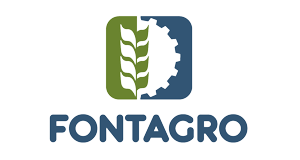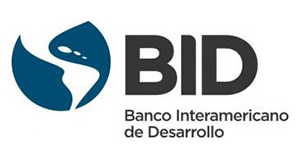Climate Technology Transfer Mechanisms and Networks
During 2014, FONTAGRO, the Global Environment Facility (GEF) and IDB established a regional project with the objective of promoting the development and transfer of environmentally sound technologies to reduce vulnerability to climate change in the agricultural sector.
The project worked on strengthening regional networks, establishing pilot initiatives in technology transfer mechanisms, and leveraging public and private investments.
It was implemented in alliance with national, regional and international organizations and involved 25 countries.




Rice cropping system: Less vulnerable and more adapted to climate change
Rice cultivation in LAC requires technological innovations, especially in family farming, in order to increase productivity, improve resource utilization and reduce the impact of climate change.
ATN/CX-14837-RG – Contrac #79.
Costa Rica – Colombia – Dominican Republic
Technological innovation platforms for smallholding farming
The project was aimed to support, at the local level, the methodological strengthening of innovation networks for the development of a sustainable agriculture, adapted to climate change and with less GHG emissions.
ATN/CX-14837-RG – Contract #80.
Colombia – Honduras
Integrated strategies for climate change adaptation in livestock family farming
Integrated strategies for Climate change adaptation in livestock production systems based on grassland management and with lower GHG’s emissions.
ATN/CX-14837-RG – Contract #92
Argentina – Bolivia – Chile – Costa Rica
Water management in banana growing areas in Nicaragua and Dominican Republic
Structured dialogue between stakeholders to improve knowledge, reconcile conflicting demands, improve the efficiency of water use in agriculture and reduce the vulnerability caused by climate variability.
ATN/CX-14837-RG – Contract #122
Nicaragua – Dominican Republic
Adaptation of agriculture to climate change in LAC
A study by CATIE
View pulblication
Agroforestry in the Dominican Republic
An analysis by CIRAD
View publication
Improving rice productivity in Panama: scaling-up of the SICA method
A study by FLAR
View publication
Improving agricultural productivity in the Dry Corridor of Nicaragua
An initiative promoted by FLAR
View publication
Lupine: rediscovering its origins, trajectory and future potential
Roadmap
View publication
Agtech: Innovation options for climate change adaptation in LAC
Study that presents the state of the art of the region.
View publication
Innovations for the adaptation of family farming to climate change in Latin America and the Caribbean
Case study
Sustainable intensification of livestock systems against climate change in Latin America and the Caribbean: State of the art.
State of the art
Agtechs Data Base
Mapping of Agtech ventures in Central America and the Dominican Republic, with links to issues of adaptation to climate change.
Technical Assistance for the Development of the Agricultural and Agroforestry Technological Innovation Program in Haiti
(PITAG)
Regional platform for sustainable intensification of livestock
Twenty-five countries in Latin America and the Caribbean join forces to promote the increase of livestock productivity and the reduction of greenhouse gases, contributing to the adaptation and mitigation of climate change.
A better way to grow rice: the SICA intensive method
The intensive rice cultivation system originated in Madagascar, requires less seed and intermittent irrigation and achieves equal or better yields. Its evaluation in Panama, Costa Rica and Nicaragua is the central objective of this initiative.
FTG/RF-14891-RG
Costa Rica – Nicaragua – Panamá
Superior cocoa quality based on community processing
Training, participatory risk analysis, the development of good practices and the design of solar dryers using photovoltaic panels predicts a rebirth for the cultivation of cocoa in the binational basin of the Sixaola River.
FTG/RF-14892-RG
Costa Rica – Panamá
Lupinus a forgotten crop: an adaptation strategy for climate change
Lupinus species are forgotten crops. Their production, processing and the promotion of consumption, contribute to increase the resilience of vulnerable people to climate change in Bolivia, Ecuador and Chile, as well as to food security.
FTG/RF-14893-RG
Bolivia – Chile – Ecuador
Strategies for control of Coffee Berry Borer in Coffea canephora
Climate change drives coffee production to greater altitudes. An alternative is Coffea Canephora, adaptable to low areas but susceptible to coffee berry borer. The project provides recommendations to improve productivity and achieve insect management
FTG/RF-14894-RG
Honduras – Nicaragua – Panamá
